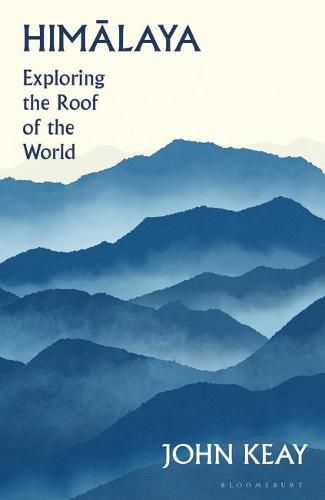Readings Newsletter
Become a Readings Member to make your shopping experience even easier.
Sign in or sign up for free!
You’re not far away from qualifying for FREE standard shipping within Australia
You’ve qualified for FREE standard shipping within Australia
The cart is loading…






A groundbreaking new look at Himalaya and how climate change is re-casting one of the world’s most unique geophysical, historical, environmental, and social regions.
More rugged and elevated than any other zone on earth, Himalaya embraces all of Tibet, plus six of the world’s eight major mountain ranges and nearly all its highest peaks. It contains around 50,000 glaciers and the most extensive permafrost outside the polar region. 35% of the global population depends on Himalaya’s freshwater for crop-irrigation, protein, and, increasingly, hydro-power. Over an area nearly as big as Europe, the population is scattered, often nomadic and always sparse. Many languages are spoken, some are written, and few are related. Religious allegiances are equally diverse. The region is also politically fragmented, its borders belonging to multiple nations with no unity in how to address the risks posed by Himalaya’s environment, including a volatile, near-tropical latitude in which temperatures climb from sub-zero at night to 80 DegreesF by day.
Himalaya has drawn an illustrious succession of admirers, from explorers, surveyors, and sportsmen, to botanists and zoologists, ethnologists and geologists, missionaries and mountaineers. It now sits seismically unstable, as tectonic plates continue to shift and the region remains gridlocked in a global debate surrounding climate change. Himalaya is historian John Keay’s striking case for this spectacular but endangered corner of the planet as one if its most essential wonders. Without an other-worldly ethos and respect for its confounding, utterly fascinating features, John argues, Himalaya will soon cease to exist.
$9.00 standard shipping within Australia
FREE standard shipping within Australia for orders over $100.00
Express & International shipping calculated at checkout
A groundbreaking new look at Himalaya and how climate change is re-casting one of the world’s most unique geophysical, historical, environmental, and social regions.
More rugged and elevated than any other zone on earth, Himalaya embraces all of Tibet, plus six of the world’s eight major mountain ranges and nearly all its highest peaks. It contains around 50,000 glaciers and the most extensive permafrost outside the polar region. 35% of the global population depends on Himalaya’s freshwater for crop-irrigation, protein, and, increasingly, hydro-power. Over an area nearly as big as Europe, the population is scattered, often nomadic and always sparse. Many languages are spoken, some are written, and few are related. Religious allegiances are equally diverse. The region is also politically fragmented, its borders belonging to multiple nations with no unity in how to address the risks posed by Himalaya’s environment, including a volatile, near-tropical latitude in which temperatures climb from sub-zero at night to 80 DegreesF by day.
Himalaya has drawn an illustrious succession of admirers, from explorers, surveyors, and sportsmen, to botanists and zoologists, ethnologists and geologists, missionaries and mountaineers. It now sits seismically unstable, as tectonic plates continue to shift and the region remains gridlocked in a global debate surrounding climate change. Himalaya is historian John Keay’s striking case for this spectacular but endangered corner of the planet as one if its most essential wonders. Without an other-worldly ethos and respect for its confounding, utterly fascinating features, John argues, Himalaya will soon cease to exist.